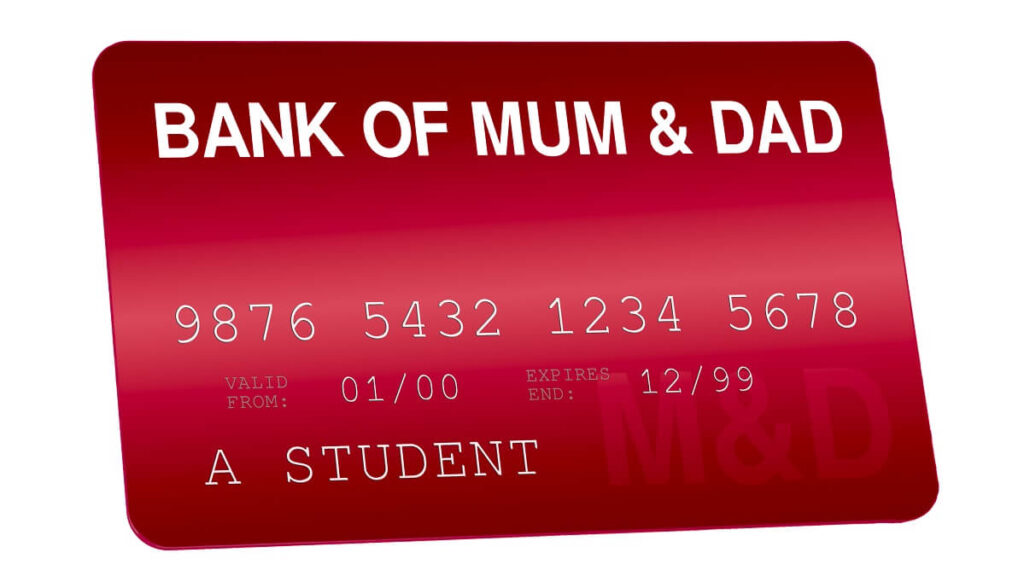The Australian Housing and Urban Research Institute estimates 40 per cent of Aussies aged 25–34 will call on the bank of mum and dad to help them fund a property purchase.
This makes understanding the necessary legal protection around the deal vital for everyone involved.
Any decision to help fund the purchase of a property, as guarantor, or your own home as security comes with potentially devastating risks.
Some pros and cons of lending within families
Pros
- For the borrower, the pros are obvious. They won’t need to save such a big deposit if they know the bank of mum and dad can put up their own cash (or security in the shape of a family home).
- The borrower can also avoid paying unwanted lender’s mortgage insurance (LMI) that is typically required for any deposit that is less than 20 per cent of the property purchase price
- There’s no actual cost to mum and dad as long as the borrower makes all their repayments.
- It doesn’t have to be forever. The borrower can build up enough equity in the home they buy to eventually achieve the required 80 per cent loan-to-value ratio – and then the guarantor can be released from the agreement.
Cons
- Mum and dad are liable: yes, your kid loves you but they might default on their mortgage. That means you, as guarantor, will be liable for the entire sum involved – and your own financial security (and your home) could be at risk.
- Borrowing power is affected: your ability to take on any further loans will be reduced while you are guarantor on the large mortgage of your loved one. You might not think you need it now but who knows what the future may bring, so it’s important to understand this potential pitfalls.
- Risking your own home: your home will be at risk if the borrower defaults on their mortgage and they can’t repay the agreed amount.
Create a contract
Business analysts Digital Financial Analytics estimates that the bank of mum and dad is one of Australia’s largest mortgage lenders, forking out an average $90,000 per child.
And while 71 per cent of respondents in the YourLifeChoices Older Australian Insights Survey 2022 owned their home outright, 43 per cent said they were not confident they could maintain their home, either physically or financially.
By creating a legal contract using an experienced lawyer, the nature of the loan arrangement or guarantor promise can be legally documented, with everyone’s intentions and commitments made crystal clear.
Presumption of advancement
“When a parent advances money or transfers property to a child, courts will presume that it is a gift, unless it can be proven otherwise – this is called the presumption of advancement.” says Melbourne law firm Hicks, Oakley, Chessel and Williams. “
Where the presumption is not rebutted and the court finds it was a gift, the parents do not have a legal claim for repayment of the money (or for the return of or payment for the property).
“Where disputes arise, it is usually the parent or the parents’ executor who will have to prove that the amounts advanced to the child were a loan and not a gift.
“The best evidence to prove that parents were not making a gift to their children, and rebut the presumption of advancement, is a properly drafted deed or agreement, signed at the time of the advance of money (or transfer of property) documenting that the parents’ intention is that the money is repayable (or that they maintain an equitable interest in the property).”
Deciding whether your own bank of mum and dad is open for business is a personal choice – and you should never feel pressured.
If you do choose to go ahead with the deal, the legal experts are adamant that loan agreements should be written and executed by all parties, including the following details:
- amount of money being lent
- interest, if any, applied to the loan
- term or duration of the loan
- repayment schedule and if there is security over the loan such as a mortgage or caveat on the property
- what happens to the money if any of the parties involved dies.
Did you borrow money from your own parents to help you buy your first home? Have you been asked by adult children to lend them money? Why not share your stories in the comments section below?
Read more: Bank of mum and dad: know the risks of being a guarantor

